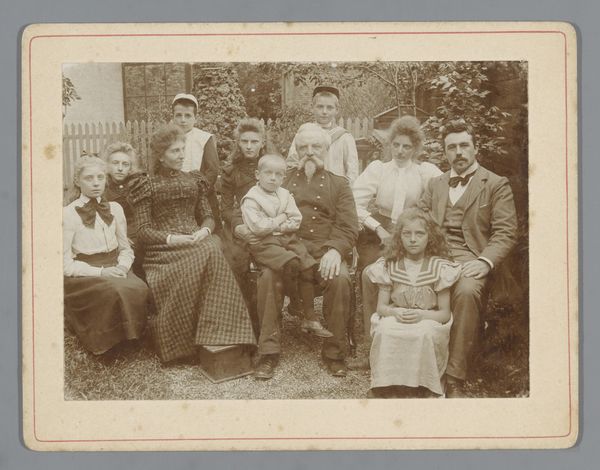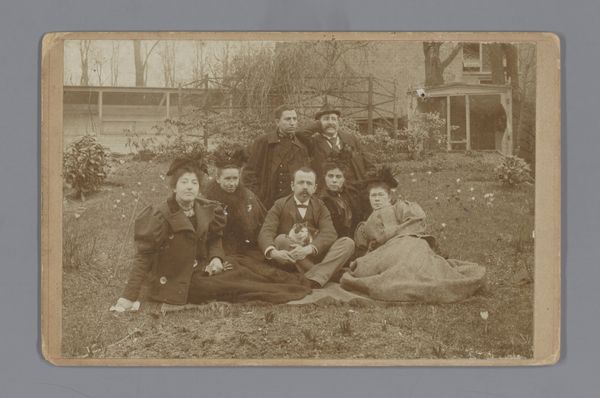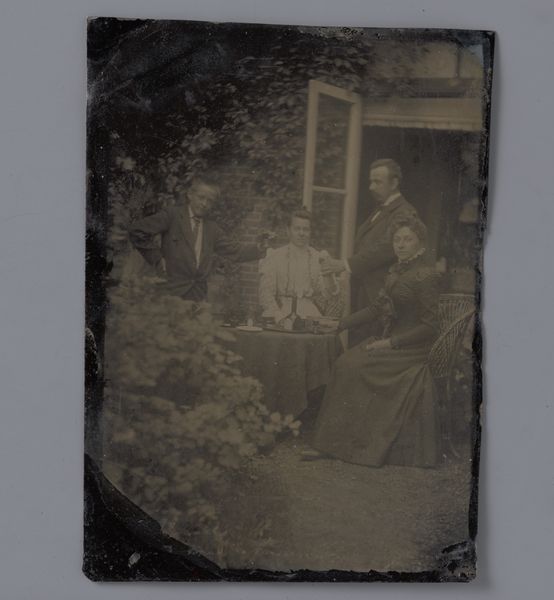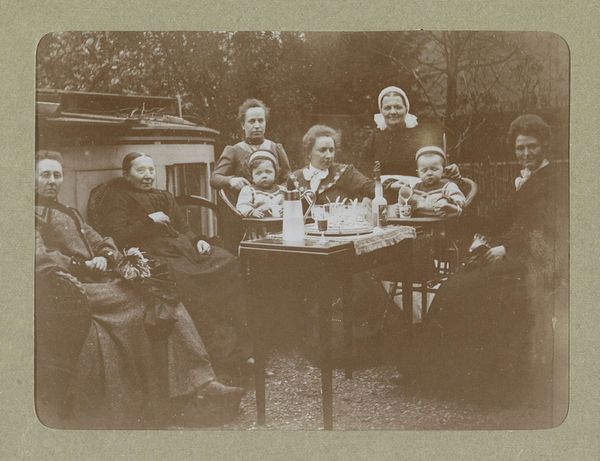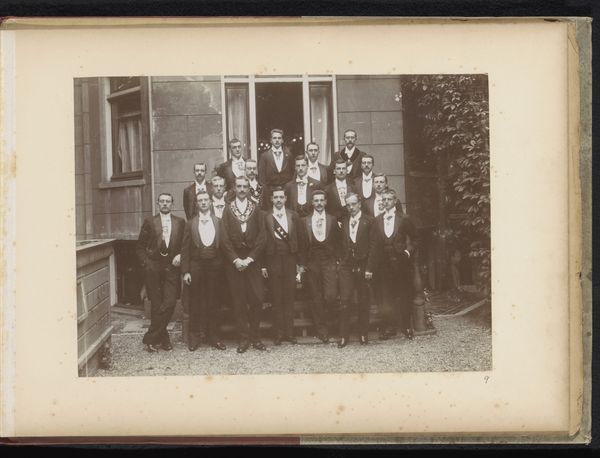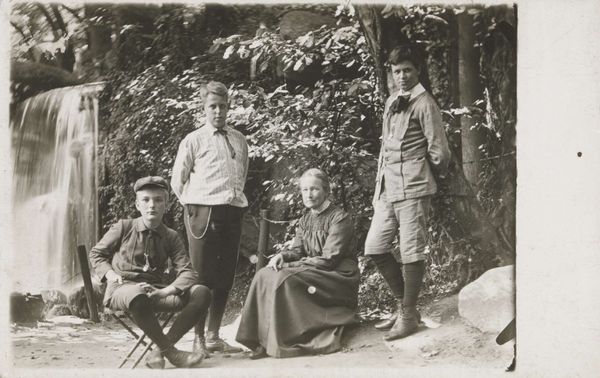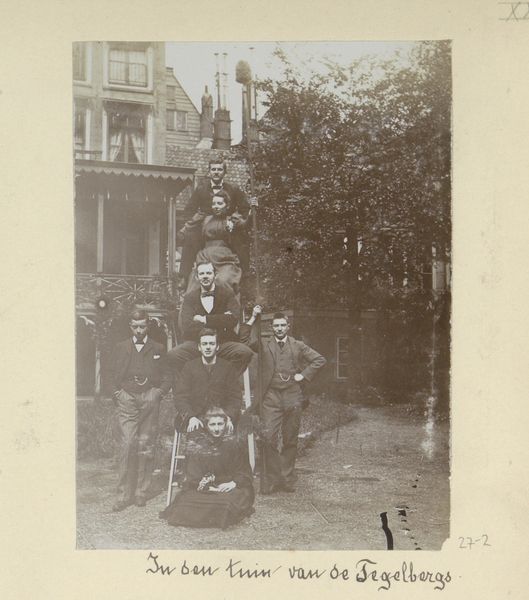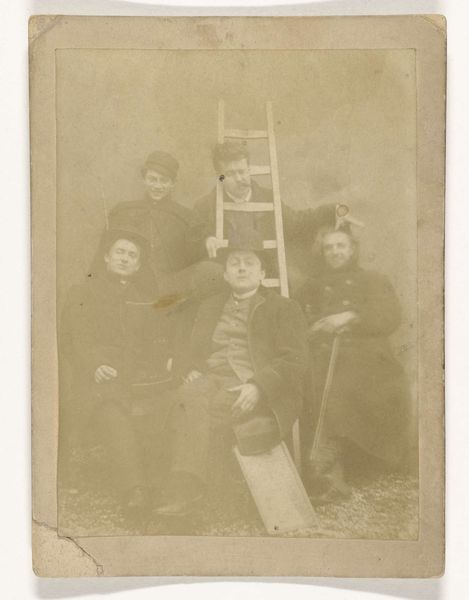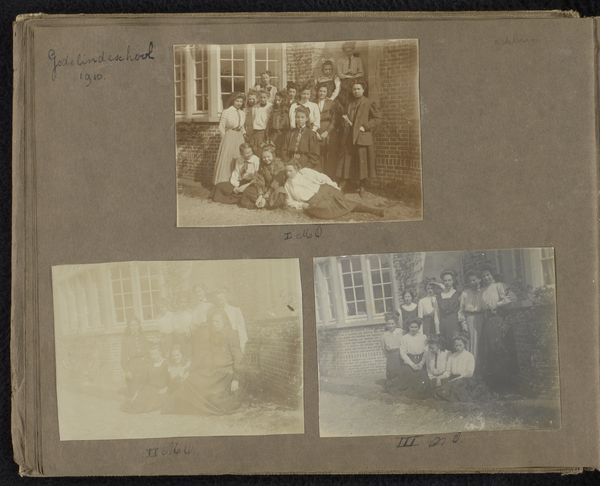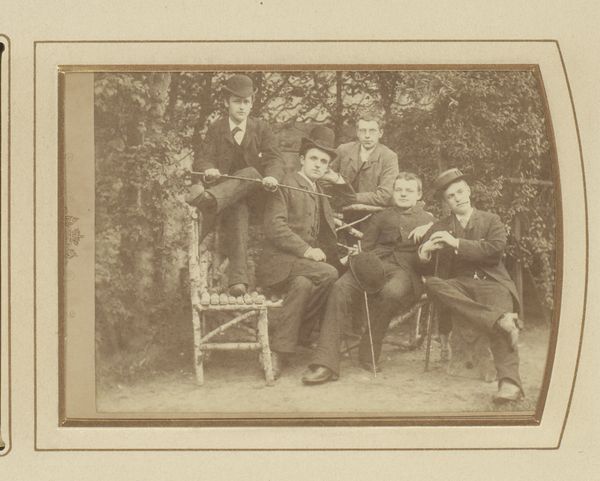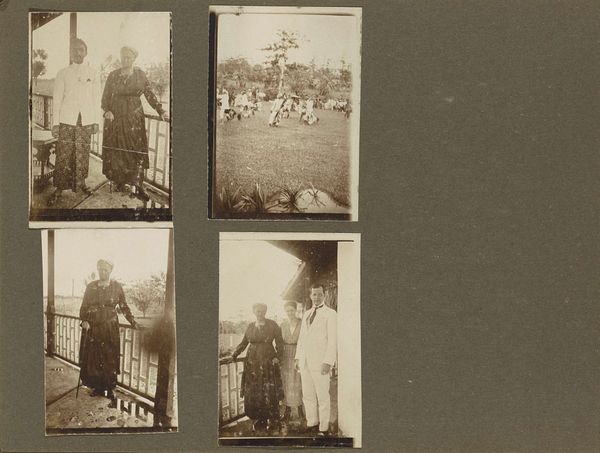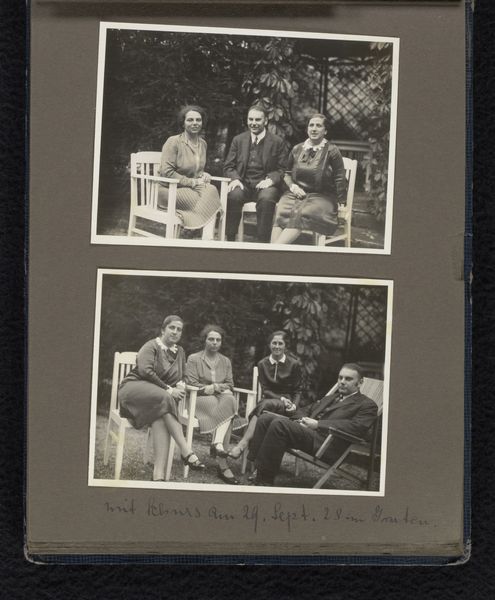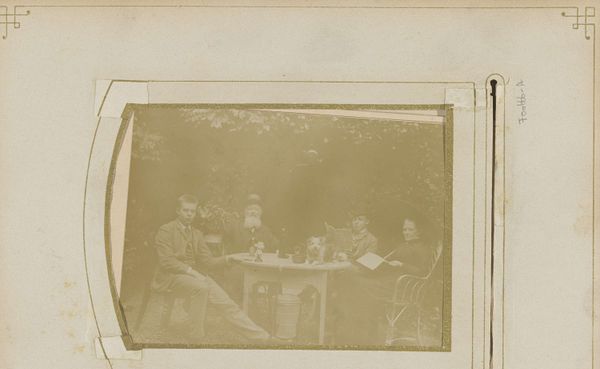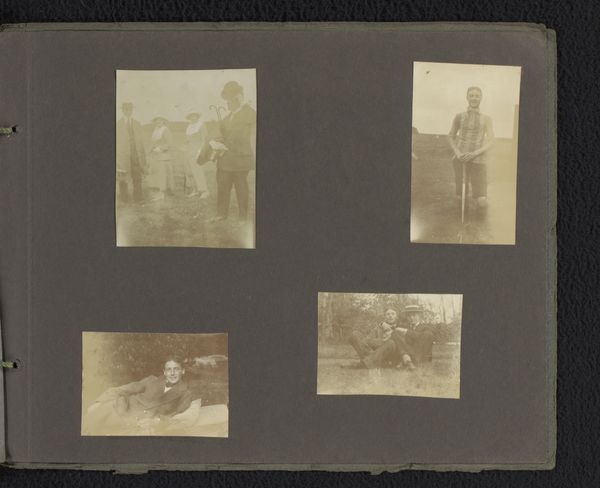
Groepsportret in de tuin van vermoedelijk Singel 256 in Amsterdam 1890 - 1900
0:00
0:00
photography, gelatin-silver-print
#
portrait
#
photography
#
gelatin-silver-print
#
genre-painting
#
realism
Dimensions: height 90 mm, width 179 mm
Copyright: Rijks Museum: Open Domain
Adrianus Scheltema-Beduin captured this group portrait, likely in Amsterdam, using photographic processes that were becoming increasingly accessible. The image, presented as a stereograph, was created through a series of chemical reactions on light-sensitive paper. Consider the labor involved in each step, from preparing the photographic plates to printing and mounting the final image. The stark contrasts and tonal range are products of a meticulous darkroom process. Photography in this era democratized portraiture. It allowed for broader social documentation, yet it remained a commodity, purchased and displayed as a symbol of status and memory. The creation of a stereograph like this one was made possible by advances in industrial chemistry and manufacturing, reflecting capitalism's influence on culture. By examining the materials and processes behind this photograph, we gain insight into the societal values, the democratization of image-making, and the impact of industrialization on artistic expression.
Comments
No comments
Be the first to comment and join the conversation on the ultimate creative platform.
